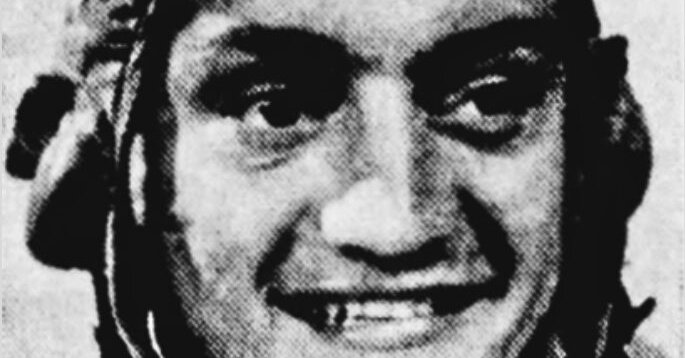The discovery of a jawbone in a child’s rock collection in Arizona over two decades ago has been identified as belonging to U.S. Marine Corps Captain Everett Leland Yager, who died in 1951. Captain Yager’s plane crashed during a military training exercise, and his remains were buried in Missouri after being recovered in California. The jawbone was discovered by a mother in her son’s rock collection, and the mystery of its origin remained unsolved until researchers at the Investigative Genetic Genealogy Center in New Jersey became involved.
After traditional DNA testing failed to yield results in government databases, the remains were sent for more advanced testing, including whole-genome sequencing, by Intermountain Forensics in Utah. The genetic profile was uploaded to public genealogy databases, where a match was found by a group of students during a weeklong boot camp at the Ramapo College center. The authorities were able to confirm the identity of the jawbone as belonging to Captain Yager after obtaining a DNA sample from his daughter.
Captain Yager, a war hero who had served in World War II and was preparing for service in the Korean War, was remembered fondly by the researchers involved in the case. The Yager family expressed gratitude for the efforts that led to the final closure of the case and had expressed their thanks to everyone involved in the investigation. The discovery of the jawbone in Arizona remains a mystery, with researchers speculating that a scavenger animal may have carried it there from elsewhere.
The use of public genealogy databases and advanced DNA testing has revolutionized the field of solving cold cases, according to David Gurney, director of the Investigative Genetic Genealogy Center. The intensive approach taken by the team at Ramapo College, which involved building family trees and identifying possible matches, led to a quick resolution of Captain Yager’s case. Such cases would have likely remained unsolved in the past, but advancements in DNA testing and genealogy tools have made it possible to identify long-lost remains and bring closure to families.
The quick resolution of Captain Yager’s case was a result of collaboration between researchers and authorities, who were able to use the latest technology and databases to identify the jawbone found in Arizona. The case serves as an example of how advancements in DNA testing and genealogy research can help solve cold cases and provide closure to families of missing individuals. The discovery of Captain Yager’s remains in Missouri, more than five decades after his death, highlights the importance of continued efforts to identify missing persons and bring them home to their loved ones.


